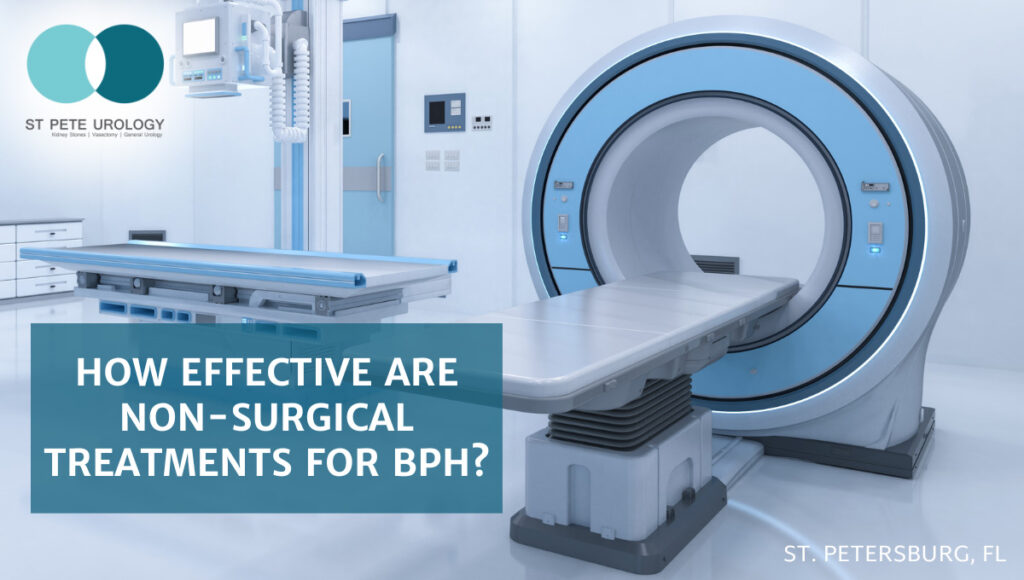Treatment options for benign prostatic hyperplasia (BPH) have increased significantly in recent years. A few years ago, men suffering from BPH only had surgery as the main treatment option. This has changed as drug-makers have developed a number of drugs to offer more choices for alleviating the symptoms of an enlarged prostate. In fact, medicines now have become the most common treatment method for men with mild-to-moderate BPH. When administered, the drugs can calm bladder and prostate muscles, shrink the prostate, stop prostate growth or relieve symptoms of BPH, such as weak urine streams or the need to urinate several times per day.
Here are some drugs commonly used to treat BPH. Before using any drug, make sure to speak with your doctor to find out which medicine is appropriate for you.
1. Alpha blockers
When diagnosed with an enlarged prostate, your doctor may recommend that you take alpha blockers to ease your symptoms. These drugs relax bladder and prostate muscles and make it easier to pass urine. While they do not alter prostate size, they are effective in promoting urine flow and will prevent the need to urinate frequently or urgently. They work right away so you will not wait too long for the results.
Some alpha blockers that your doctor may suggest include:
- (a) Doxazosin (Cardura)
- (b) Alfuzosin (Uroxatral)
- (c) Tamsulosin (Flomax)
- (d) Silodosin (Rapaflo)
- (e) Prazosin (Minipress)
- (f) Terazosin (Hytrin)
Alpha blockers are very effective for men with both BPH and high blood pressure because they remedy both conditions. However, the drugs should not be taken by men planning to go for cataract surgery as they may cause problems during the surgery.
Side effects of alpha blockers include:
- Tiredness/fatigue
- Fainting
- Dizziness
- Lightheadedness
- Headaches
- Low blood pressure
Alpha blockers also can cause retrograde ejaculation, a condition in which sperm moves backward into the bladder instead of moving forward through the penis. While the condition is not harmful, it means that the fluid ejaculated may not contain sperm. Therefore, men with BPH should keep this in mind particularly if they still desire to have children.
2. 5-Alpha reductase inhibitors
In order to prevent the prostate from growing or just to shrink it, the urologist may recommend that you take a 5-alpha reductase inhibitor. Such drugs stop the body from producing one of the hormones necessary for prostate growth and enlargement. As a result, the drugs improve urine flow and relieve the symptoms of BPH. The 5-ARIs are most effective in men with very large prostates.
The two major 5-alpha reductase inhibitors recommended for BPH are:
- Dutasteride (Avodart)
- Finasteride (Proscar, Propecia)
Apart from shrinking or stopping the growth of the prostate and relieving BPH symptoms, the 5-ARIs have two other benefits:
- They reduce the chances that BPH will result in other complications, like bladder damage.
- They eliminate the need for surgery as treatment for BPH.
The full effects of 5-alpha reductase inhibitors may take up to 6 months to be realized. So you must continue taking the medicines for as long as necessary.
Side effects of 5-ARIs
5-alpha reductase inhibitors are not supposed to be used by women. In fact, pregnant women must never be exposed to the drugs as they can cause birth defects in male fetus. Other side effects of 5-ARIs include:
- (a) Lower sex drive/libido
- (b) Erectile dysfunction
- (c) Retrograde ejaculation
Some of these side effects may improve as the body gets used to the drug.
The 5-ARI drugs also may reduce the levels of prostate-specific antigen (PSA) in the blood. PSA levels are used to screen for prostate cancer, so a drug-induced drop makes it impossible to use the PSA test. It is advisable to have the PSA test done before you start these drugs. The FDA now requires that the labels on 5-ARIs must include a warning that they may increase the risk of having aggressive (high-grade) prostate cancer.
3. Phosphodiesterase-5 inhibitors
In some cases of BPH, the urologist may recommend the use of phosphodiesterase-5 inhibitors, which are drugs that smooth the muscles of the prostate and bladder and help to relieve BPH symptoms. While there are many types of phosphodiesterase-5 inhibitors, only tadalafil (Cialis) has been approved by the FDA for treatment of BPH. Tadalafil is not prescribed as often as other drugs, but when doctors are dealing with cases in which BPH and ED occur together, then it is often a viable option.
The side effects of Tadalafil include:
- (a) Headaches
- (b) Muscle and back pain
- (c) Stomach upset (after eating)
- (d) A stuffy nose
- (e) Vision problems
- (f) Redness, warmth or burning on the neck, face and upper body
4. Combination therapy
When a doctor realizes that a single medication may not effectively relieve BPH symptoms, a combination of two or more drugs may be considered. The most common drug combinations for treating BPH include:
- (a) Tamsulosin and Dutasteride, comes in one pill called Jalyn
- (b) Doxazosin and Finasteride
- (c) Alpha blocker and an antimuscarinic (a drug for treating overactive bladder)
Drug combinations are generally more effective than single drug treatments. However, the combinations also come with greater side effects than those of single drugs.
Are you or your loved one suffering from the symptoms of BPH? Would you like to receive accurate information and effective treatment for an enlarged prostate? Or do you want someone to to talk to about any other urological problem that you may have? If so, then St Pete Urology is the right place for you. For more information on the diagnosis, treatment and care for BPH, visit the “St Pete Urology site.




